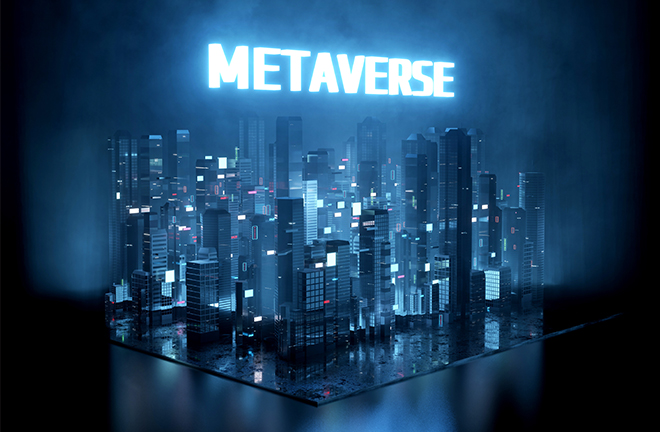Technological essence and industrial logic of metaverse

The metaverse integrates new information technologies characterized by realism, immersion, and openness. Photo: TUCHONG
The essence of technology can be explored from both an external perspective and an internal perspective. The former examines technology’s relationship with human society and nature, and the latter investigates the connections between technological entities as well as their origins and evolutionary mechanisms. From an internal perspective, this article argues that metaverse technology represents a process of continuous self-evolution of new digital technologies through industrial application and societal adoption, and posits that a techno-economic system is formed through reciprocal development and facilitation of metaverse technology and its industry.
The metaverse integrates hardware and software devices, the internet, and users into a virtual reality system, which is essentially a spatiotemporal combination of new information technologies characterized by realism, immersion, and openness. The core evolutionary mechanism of the metaverse is “combinatorial evolution.” In this process, metaverse technology grows exponentially through the reconfiguration of existing digital technology modules. In terms of technological essence, metaverse technology is an ensemble of phenomena arising from the capture and utilization of information and digital technology. In other words, it is the deliberate programming of these informational-digital phenomena. The technology and economy associated with the metaverse are mutually constructed as follows.
First, new technologies entailed by the metaverse emerge. These are developed from existing technologies and incorporated into the technological ensemble of the metaverse as new elements. Second, these new technologies become active and replace existing technologies or their components. Third, the new technologies give rise to supporting technologies and organizational arrangements such as industrial policy planning, creating new industrial opportunities. Fourth, older technologies phase out, along with their related demand and previous industrial opportunities, signaling a period of industrial transformation and upgrading. Fifth, the new elements of the metaverse become active. Sixth, the production and consumption modes of the metaverse economy are adjusted to adapt to the aforementioned changes, with corresponding economic policies and systems evolving accordingly, ultimately leading to the emergence of a new metaverse digital economy.
Metaverse technology consists of components that cluster into a “domain,” which refers to technological entities grouped together to achieve common goals and produce synergistic effects. The effective selection and engineering design of these technological components is termed “domaining,” and disruptive technological changes result from “redomaining.” To realize the metaverse and envision its future, “redomaining” existing and emerging advanced information technology is a viable and promising path for the development of the metaverse industry.
Co-adaptation and co-innovation of the new technological and economic domains of the metaverse drive its industrial development. Currently, the metaverse follows a “disruptive change” model characterized by co-evolution in the technological domain and co-creation in the economic domain. As both technology and the economy should pursue beneficial values, it is important to improve and innovate their mutual development and facilitation.
First, the new technological domain of the metaverse needs to establish credibility by identifying purposes and uses that enhance human well-being while avoiding superficial hype and short-term exploitation. Second, the core technology of the metaverse must be capable of overcoming technical obstacles to commercial application in real-world scenarios. Third, efficiently bridged and securely synergized supporting technologies for the metaverse must be developed. It is necessary to increase network transmission speed, develop specialized chips, and construct dedicated information infrastructure. Fourth, theoretical research on the metaverse economy should be emphasized, with a particular focus on the in-depth examination of techno-economic systems. Fifth, governance solutions need to be proposed. The metaverse faces risks related to its operational mechanisms, emerging industry regulations, and ethical concerns. Governments should adopt a prudent regulatory approach. Effective governance is the key to promoting the healthy development of the metaverse industry.
Chen Linsheng et al. are from Zhejiang Sci-Tech University, Fudan University, and Yangtze Delta Region Institute of Tsinghua University, Zhejiang.
Edited by WANG YOURAN
